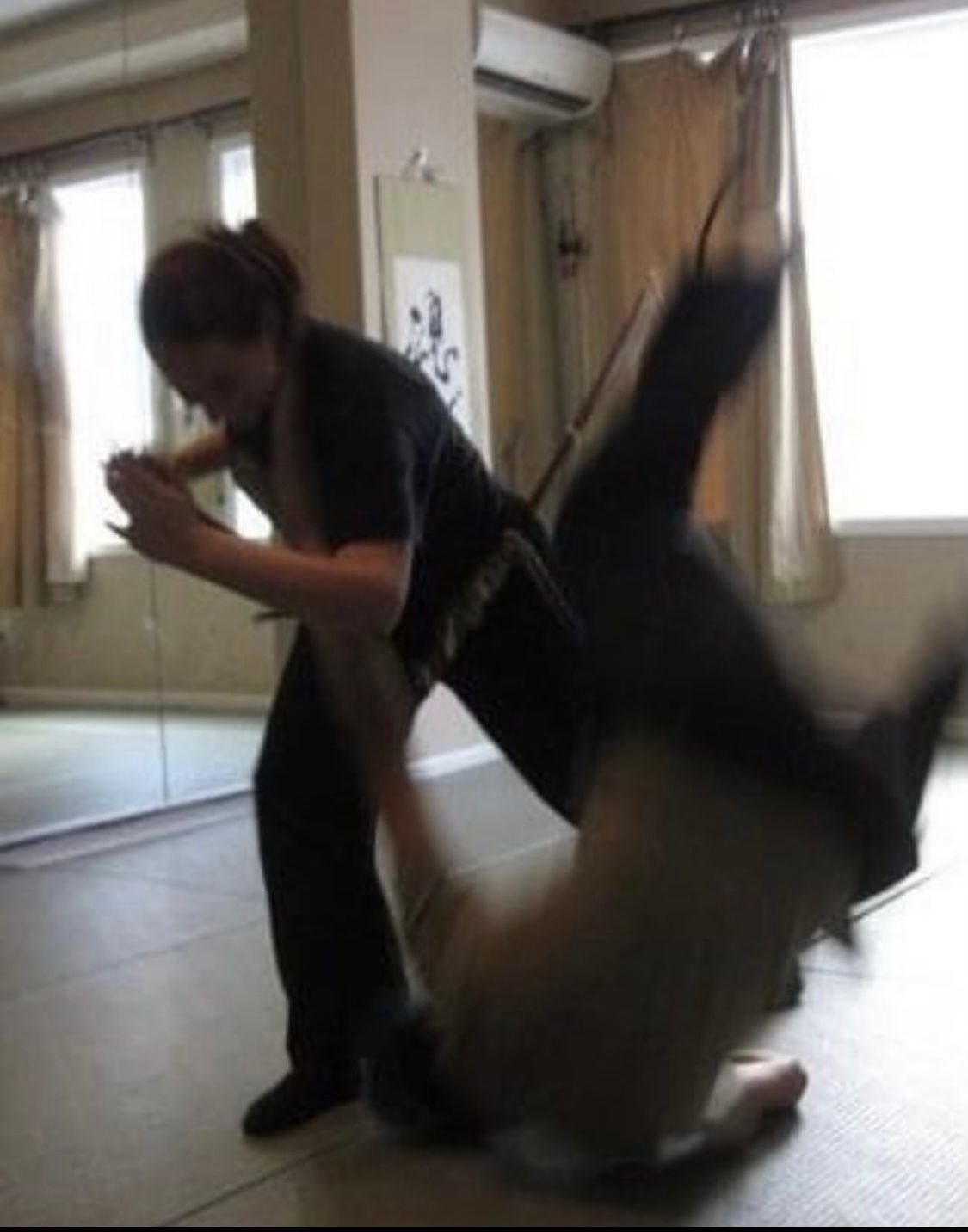
Fall Out of Balance (In Order to Find It Again)
The last time I made a trip to Japan to study martial arts, I learned that one of the instructors was battling cancer. Though the instructor’s health was rapidly declining, he never stopped teaching. He was never late. He never complained.
The instructor’s name was Seno-san. Standing upright, he may have reached my shoulders. His eyes shone when he smiled. He welcomed beginners, advanced students, and everyone in between into his classes with open arms.
When teaching, Seno broke down a technique into bite-size pieces. Then, he demonstrated the same technique in a slow, dynamic way. And finally, he demonstrated the technique so cleanly, that if you blinked, you missed it.
Seno never went fast. But, the precision of his movements caused any attacker to—how can I put this—fall into the space of their own attack. In that way, from the attacker’s point of view, Seno simply disappeared.
Seno was a master technician. It seemed like he never made mistakes, until …
He lost his balance in the middle of class while throwing someone …
And fell. Hard.
Everyone in the dojo froze.
I didn’t know the proper etiquette for a situation like that. I don’t think anyone else did either. So, for several moments, no one made a sound. No one moved to help Seno stand.
We all watched as Seno stood himself up, dusted off his gi, and motioned for his partner to attack again.
But this time, Seno intentionally stood at a strange angle. Instead of raising his arms to form a proper kamae (fighting stance), he held up his hands as if carrying two cups. When he spoke, one of his students translated for us.
“It’s OK. Sometimes when you fight, you fall out of balance. Like maybe you drank too much sake.”
We laughed.
Seno demonstrated the technique once more, starting from that strange, kinda-drunk-looking stance. He threw his partner, and dropped into a much more solid kamae.
“Maybe you will find yourself back in balance later.”
When I took that class, I was at a crossroads in my life. About to turn thirty, I had just ended a long, tumultuous relationship. I had just finished graduate school. I had just lost my great-uncle, who was like a second father to me. I felt untethered. Lost.
All I knew was that training in martial arts was the one thing that always made me feel grounded. If I went to the source, if I spent enough time on the mats, maybe I would find … I didn’t know what. An answer. A new direction. A better path forward.
But, what I really needed to learn—and accept—is exactly what Seno taught us that day. It’s OK to feel lost. It’s OK to lose your balance. And it’s totally OK to f*** up.
In fact, mistakes are actually tools that lead you to where you need to be.
When writing the first draft of a screenplay, if you allow yourself the freedom to be messy and make mistakes, you’ll be able to explore the story, get to know the characters, and make discoveries without judgement or the ‘rules’ getting in the way. Easier said than done for all of us perfectionists, but this is the fastest way to get to the second draft and beyond.
Then, it’s time for revision.
I like to think of revision like this: (Re)Vision.
When you revise, you see things in a different way. You’re not inside the story. You’re above the story. You’re able to look at the elements of a scene, an act, or the script as a whole from a more objective point of view. That way, you can tell which elements of craft you need to apply to which piece of the story.
Revising a script is a lot like practicing a technique on the mats. You begin with a foundation, make adjustments after you get notes, and work until everything flows.
Eventually, the hand of the author will magically disappear.

I like to end my essays about writing with an exercise, so here’s one for you:
EXERCISE: Pick a scene from a story you’re working on—any scene—and write the messiest version you will ever write. Give yourself permission to write like you’re a little tipsy, like you don’t give a f*** who likes it or doesn’t like it, like nobody will see it but you.
Allow yourself the opportunity to fall out of balance in order to bring you to exactly where you need to be.
Happy writing!
*Feature photo by Chris Chen

Maybe you’re brand new to screenwriting, and don’t know where to start. Maybe you’ve been writing for a while, but you’re looking for more effective action-writing tools. Merridith Allen will teach you how to write the kind of screen action that makes it impossible for a reader to put your script down.

